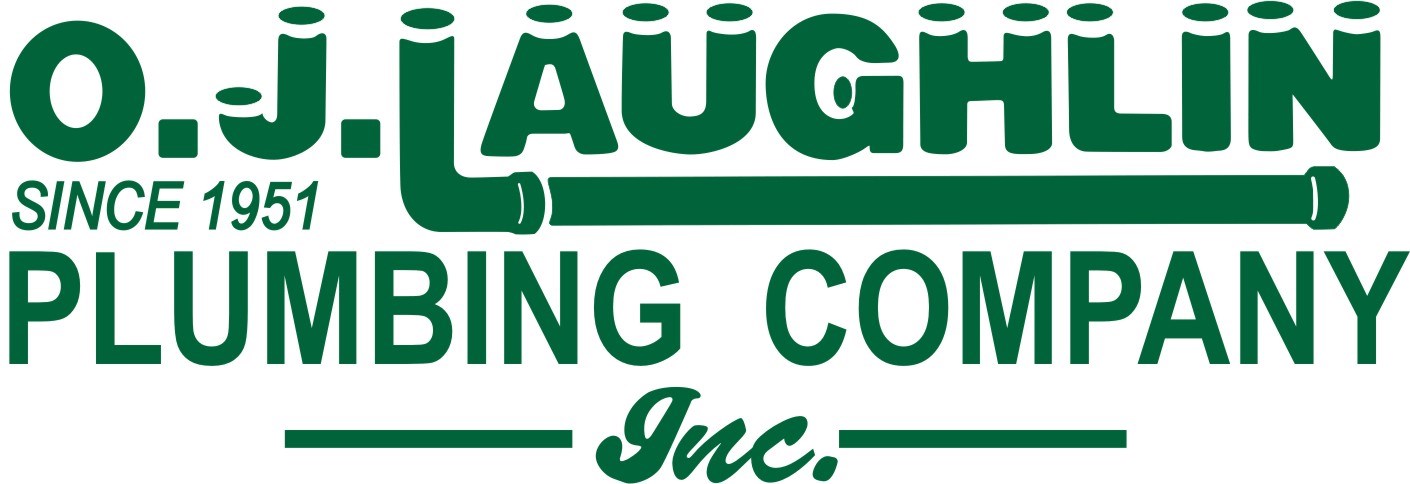
Get matched with top septic tank pros in Berryville, AR
Enter your ZIP and get matched with up to 5 pros
Need a pro for your septic tank service project in Berryville, AR?
TRUSTED BY BERRYVILLE, AR HOMEOWNERS
4.9
Average homeowner rating21
Verified septic tank services reviews
Verified Reviews for Septic Tank Service pros in Berryville, AR
*The Angi rating for Septic Tank Service companies in Berryville, AR is a rating based on verified reviews from our community of homeowners who have used these pros to meet their Septic Tank Service needs.
*The HomeAdvisor rating for Septic Tank Service companies in Berryville, AR is a rating based on verified reviews from our community of homeowners who have used these pros to meet their Septic Tank Service needs.
Last update on December 05, 2025
Find Septic tank pros in Berryville

Z&M Construction, Excavation, and Septic
Z&M Construction, Excavation, and Septic
We are a newly formed family owned business looking to build long term relationships with customers. We will provide top quality workmanship, competitive pricing, and promptness to get our customers needs satisfied in a timely manner. Honesty and Integrity are at the top of my personal list of attributes while serving the public. No job is too big with over 10 years of experience in commercial and residential water and sewer installation, septic system installation, road and driveway construction and repair, gravel/dirt hauling, land clearing/leveling, pad building for metal buildings and pole barns, pasture clearing, and retaining wall construction.
We are a newly formed family owned business looking to build long term relationships with customers. We will provide top quality workmanship, competitive pricing, and promptness to get our customers needs satisfied in a timely manner. Honesty and Integrity are at the top of my personal list of attributes while serving the public. No job is too big with over 10 years of experience in commercial and residential water and sewer installation, septic system installation, road and driveway construction and repair, gravel/dirt hauling, land clearing/leveling, pad building for metal buildings and pole barns, pasture clearing, and retaining wall construction.
PATRIOT LANDWORKS & DEVELOPMENT
PATRIOT LANDWORKS & DEVELOPMENT
Licensed & Insured Septic Installation serving all of Arkansas! Excavation, Land Clearing, Ponds, Culverts, Foundation & RV Pads, Storm Shelters, Off Grid Solutions, etc. Local Veteran Owned Patriotic Business! Professional, Timely & Honest!
Licensed & Insured Septic Installation serving all of Arkansas! Excavation, Land Clearing, Ponds, Culverts, Foundation & RV Pads, Storm Shelters, Off Grid Solutions, etc. Local Veteran Owned Patriotic Business! Professional, Timely & Honest!
J & N Septic Services,LLC
J & N Septic Services,LLC
Family owned and operated. We offer septic locating and pumping services to NW Arkansas residents .
Family owned and operated. We offer septic locating and pumping services to NW Arkansas residents .
T&N
T&N
Local Family owner-operator business with 15 years of experience. Ranging in excavating which includes clearing and scraping lots, leveling lots/pads, building pads, digging footers, grating driveways/roads, removal of concrete, removal of trees and brush, all dirtwork and back filling, small concrete jobs, and fencing and landscaping. We are also certified for septic tank installation and repair, sewer lift station installation. Where we believe every job is important.
Local Family owner-operator business with 15 years of experience. Ranging in excavating which includes clearing and scraping lots, leveling lots/pads, building pads, digging footers, grating driveways/roads, removal of concrete, removal of trees and brush, all dirtwork and back filling, small concrete jobs, and fencing and landscaping. We are also certified for septic tank installation and repair, sewer lift station installation. Where we believe every job is important.
Wicked Web Design & SEO
Wicked Web Design & SEO
Want an Awesome looking website that also Ranks in the search engines? If you're expecting for it to generate new customers it's vital potential customers find it when they search. This is called Search Engine Optimization. Everyone and their brother are building websites these days, and ironically they are all SEO experts. Most people are smart enough to figure out this isn't true. We are 100% from the United States. Our team is comprised of Graphic Designers, a content writer and one of the Best SEO's in the Country. We have hundreds of #1 Rankings for some of the hardest search terms available. Ask to see some samples. Wicked Web Design is a division of Justin Monk SEO. It became a division to full-fill the entire package. Anyone can build a website, but if the on-page optimization isn’t done correctly the website will never rank. The customer then is forced to pay to have it re-done. Here’s where it gets tricky. Everyone says they are good at SEO, when actually very few are. It definitely isn’t fair to you the customer. Please do your homework and check their rankings. If they don’t have rankings chances are they aren’t very good. We rank in every city we have targeted. Ask to see the list. Awesome web Design mixed with Dominating SEO is a combination any company looking to destroy their competition can’t go without. Please allow extra time for our website (Visit Website) to load, the Demo is displaying all features available which dramatically slow down the loading speed. All the features are displayed so you can choose which ones you want for your website which will be much faster.
Want an Awesome looking website that also Ranks in the search engines? If you're expecting for it to generate new customers it's vital potential customers find it when they search. This is called Search Engine Optimization. Everyone and their brother are building websites these days, and ironically they are all SEO experts. Most people are smart enough to figure out this isn't true. We are 100% from the United States. Our team is comprised of Graphic Designers, a content writer and one of the Best SEO's in the Country. We have hundreds of #1 Rankings for some of the hardest search terms available. Ask to see some samples. Wicked Web Design is a division of Justin Monk SEO. It became a division to full-fill the entire package. Anyone can build a website, but if the on-page optimization isn’t done correctly the website will never rank. The customer then is forced to pay to have it re-done. Here’s where it gets tricky. Everyone says they are good at SEO, when actually very few are. It definitely isn’t fair to you the customer. Please do your homework and check their rankings. If they don’t have rankings chances are they aren’t very good. We rank in every city we have targeted. Ask to see the list. Awesome web Design mixed with Dominating SEO is a combination any company looking to destroy their competition can’t go without. Please allow extra time for our website (Visit Website) to load, the Demo is displaying all features available which dramatically slow down the loading speed. All the features are displayed so you can choose which ones you want for your website which will be much faster.

Delta Van Lines Inc
Delta Van Lines Inc
Delta Van Lines one of the most trusted Nationwide movers provides the first-class treatment that your belongings deserve. Our moving company offers a variety of moving services that can be customized based on your specific requirements. Are you looking for a local or state-to-state moving solution? Choose Delta Van Lines to ensure your moving experience is absolutely smooth and free from any kind of stress or confusion. If you are looking for someone to facilitate a residential or corporate relocation or a local or long distance move, Delta Van Lines is the name you can count on for impeccable quality of moving services Here at Delta Van Lines, customer satisfaction is our number one priority. We look forward to assisting you with all your moving needs! Call us today for a free quote at 800-544-1380
"very smoothly"
Sukran A on August 2018
Delta Van Lines one of the most trusted Nationwide movers provides the first-class treatment that your belongings deserve. Our moving company offers a variety of moving services that can be customized based on your specific requirements. Are you looking for a local or state-to-state moving solution? Choose Delta Van Lines to ensure your moving experience is absolutely smooth and free from any kind of stress or confusion. If you are looking for someone to facilitate a residential or corporate relocation or a local or long distance move, Delta Van Lines is the name you can count on for impeccable quality of moving services Here at Delta Van Lines, customer satisfaction is our number one priority. We look forward to assisting you with all your moving needs! Call us today for a free quote at 800-544-1380
"very smoothly"
Sukran A on August 2018

Envirotek Systems
Envirotek Systems
Envirotek Systems is a septic system and wastewater service provider in Branson, MO. We specialize in sewage services including septic system repair and installations, tank pumping, sewer & grinder pumps, lift stations, sewage treatment plants, septic inspections, excavation, water lines & drainage systems. We have 2 office locations in Missouri. One in Branson & one in Nixa, but we service all of Missouri including Springfield, Ozark, Kimberling City, Table Rock Lake and NW Arkansas. Envirotek Systems has been servicing Missouri for over 27 years. We have extensive knowledge and experience in providing solutions for sewer pumps. We specialize in grinder pump repair and develop our own sewer pumps and control panels w/ a 10 year warranty.
Envirotek Systems is a septic system and wastewater service provider in Branson, MO. We specialize in sewage services including septic system repair and installations, tank pumping, sewer & grinder pumps, lift stations, sewage treatment plants, septic inspections, excavation, water lines & drainage systems. We have 2 office locations in Missouri. One in Branson & one in Nixa, but we service all of Missouri including Springfield, Ozark, Kimberling City, Table Rock Lake and NW Arkansas. Envirotek Systems has been servicing Missouri for over 27 years. We have extensive knowledge and experience in providing solutions for sewer pumps. We specialize in grinder pump repair and develop our own sewer pumps and control panels w/ a 10 year warranty.
Jet Excavating
Jet Excavating
All types of residential and commercial excavation. All invioces are due upon completion of the job, unless other arrangements are made.
All types of residential and commercial excavation. All invioces are due upon completion of the job, unless other arrangements are made.

Yoder Backhoe and Septic
Yoder Backhoe and Septic
We provide septic system and backhoe services. Owner-operator David Yoder has over 30 years of experience, serving all of Northwest Arkansas since 1991! Free estimates. Upfront pricing on all work. Accepting cash, checks, and credit cards.
We provide septic system and backhoe services. Owner-operator David Yoder has over 30 years of experience, serving all of Northwest Arkansas since 1991! Free estimates. Upfront pricing on all work. Accepting cash, checks, and credit cards.
T & T All American Plumbing Heating and Air
T & T All American Plumbing Heating and Air
Veteran and Family Owned,Free Estimates, 24/7 Fast Friendly Same Day Service, Residential and Commercial, 25 Years of Experience, Licence Bonded and Insured, Senior Citizen and Military Discount, Customer Service and Family Oriented, Servicing all of North West Arkansas. Come to us Where you will Know your Familiy.
Veteran and Family Owned,Free Estimates, 24/7 Fast Friendly Same Day Service, Residential and Commercial, 25 Years of Experience, Licence Bonded and Insured, Senior Citizen and Military Discount, Customer Service and Family Oriented, Servicing all of North West Arkansas. Come to us Where you will Know your Familiy.
The Berryville, AR homeowners’ guide to septic tank services
From average costs to expert advice, get all the answers you need to get your job done.

Need to know what sewer line replacement costs in Detroit, MI? This guide will help you prepare to budget for sewer line replacement done by local contractors.

Need to know what sewer line replacement costs in Los Angeles, CA? This guide will help you prepare to budget for sewer line replacement done by local contractors.

Need to know what sewer line replacement costs in Tampa, FL? This guide will help you prepare to budget for sewer line replacement done by local contractors.

A clogged main sewer line can lead to sewage leaks in your yard or home. Look for these eight signs of a clogged septic line to fix this problem ASAP.

In order to function properly, your septic tank needs to be regularly inspected and emptied. How often you should get your septic tank inspected depends on a few factors.

Your lot might require an alternative septic system based on location and soil conditions. Learn all about alternative septic systems and their costs.
- Holiday Island, AR Septic tank pros
- Green Forest, AR Septic tank pros
- Eureka Springs, AR Septic tank pros
- Golden, MO Septic tank pros
- Blue Eye, MO Septic tank pros
- Lampe, MO Septic tank pros
- Shell Knob, MO Septic tank pros
- Garfield, AR Septic tank pros
- Ridgedale, MO Septic tank pros
- Kimberling City, MO Septic tank pros
- Huntsville, AR Septic tank pros
- Cape Fair, MO Septic tank pros
- Seligman, MO Septic tank pros
- Branson West, MO Septic tank pros
- Reeds Spring, MO Septic tank pros
- Little Flock, AR Septic tank pros
- Hollister, MO Septic tank pros
- Galena, MO Septic tank pros
- Branson, MO Septic tank pros
- Harrison, AR Septic tank pros
- Rogers, AR Septic tank pros
- Goshen, AR Septic tank pros
- Kirbyville, MO Septic tank pros
- Cassville, MO Septic tank pros
- Pea Ridge, AR Septic tank pros
- Lowell, AR Septic tank pros
- Elkins, AR Septic tank pros
- Jasper, AR Septic tank pros
- Merriam Woods Village, MO Septic tank pros
- Rockaway Beach, MO Septic tank pros
- Electrical in Berryville
- Tree Service in Berryville
- Garage Doors in Berryville
- Foundation Repair in Berryville
- Kitchen And Bath Remodeling in Berryville
- Fencing in Berryville
- Roofing in Berryville
- Insulation in Berryville
- Mailbox Repair in Berryville
- Ceiling Fans in Berryville
- Landscaping in Berryville
- Carpet Cleaning in Berryville
- Upholstering in Berryville
- Painting in Berryville
- Contractor in Berryville
- Home Builders in Berryville
- Siding in Berryville
- Pest Control in Berryville
- Computer Repair in Berryville
- Lawn And Yard Work in Berryville
- Moving in Berryville
- Deck Maintenance in Berryville
- Swimming Pools in Berryville
- Cleaning in Berryville
- Phone Repair in Berryville
- Stone And Gravel in Berryville
- Handyman Service in Berryville
- Plaster Plaster Repair in Berryville
- Concrete Driveways in Berryville
- Skylights in Berryville
- 🌱 "Mow a small front yard"
- 🛠 "Fix a leaking pipe under the sink"
- 🏠 "Repair shingles on an asphalt roof"

